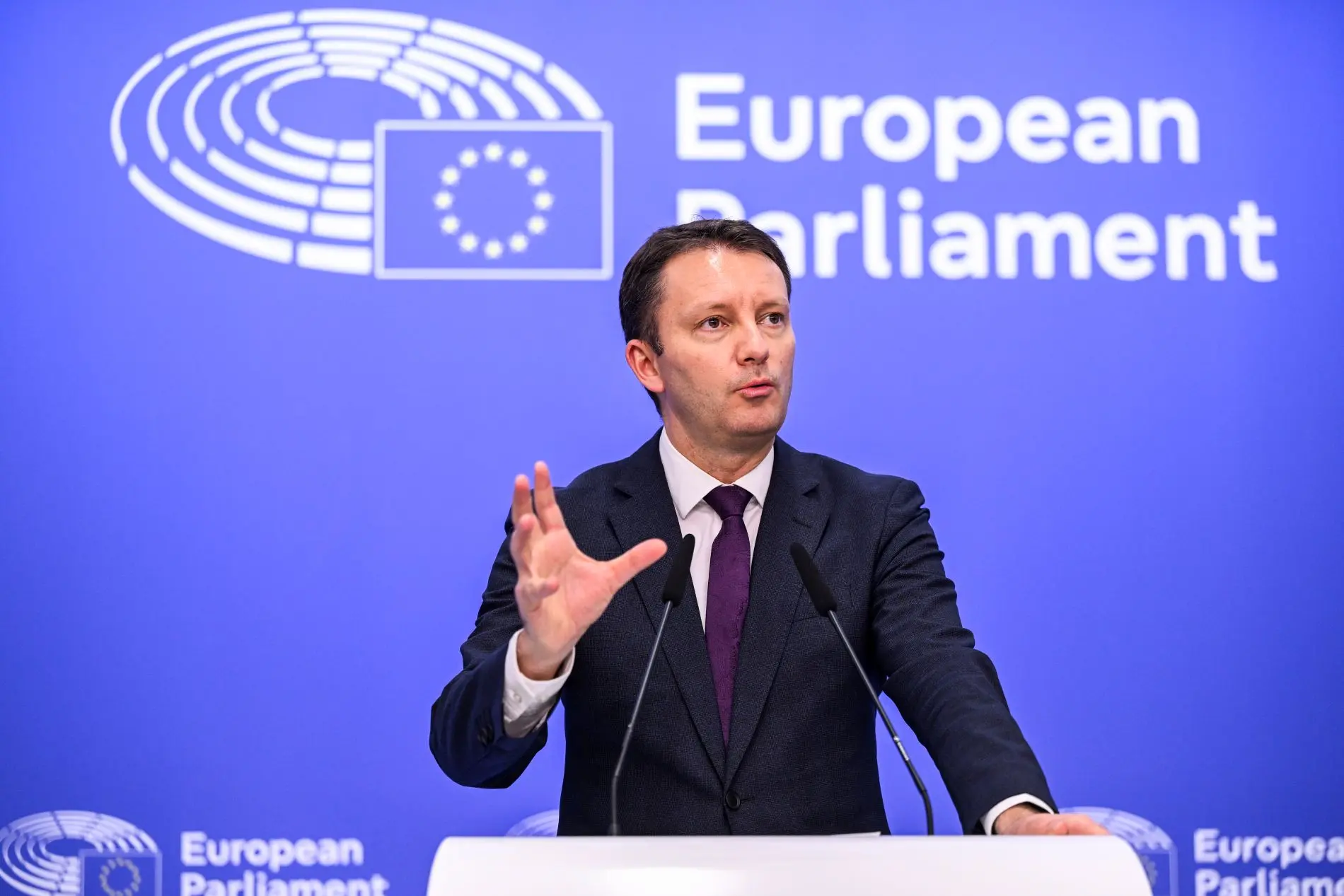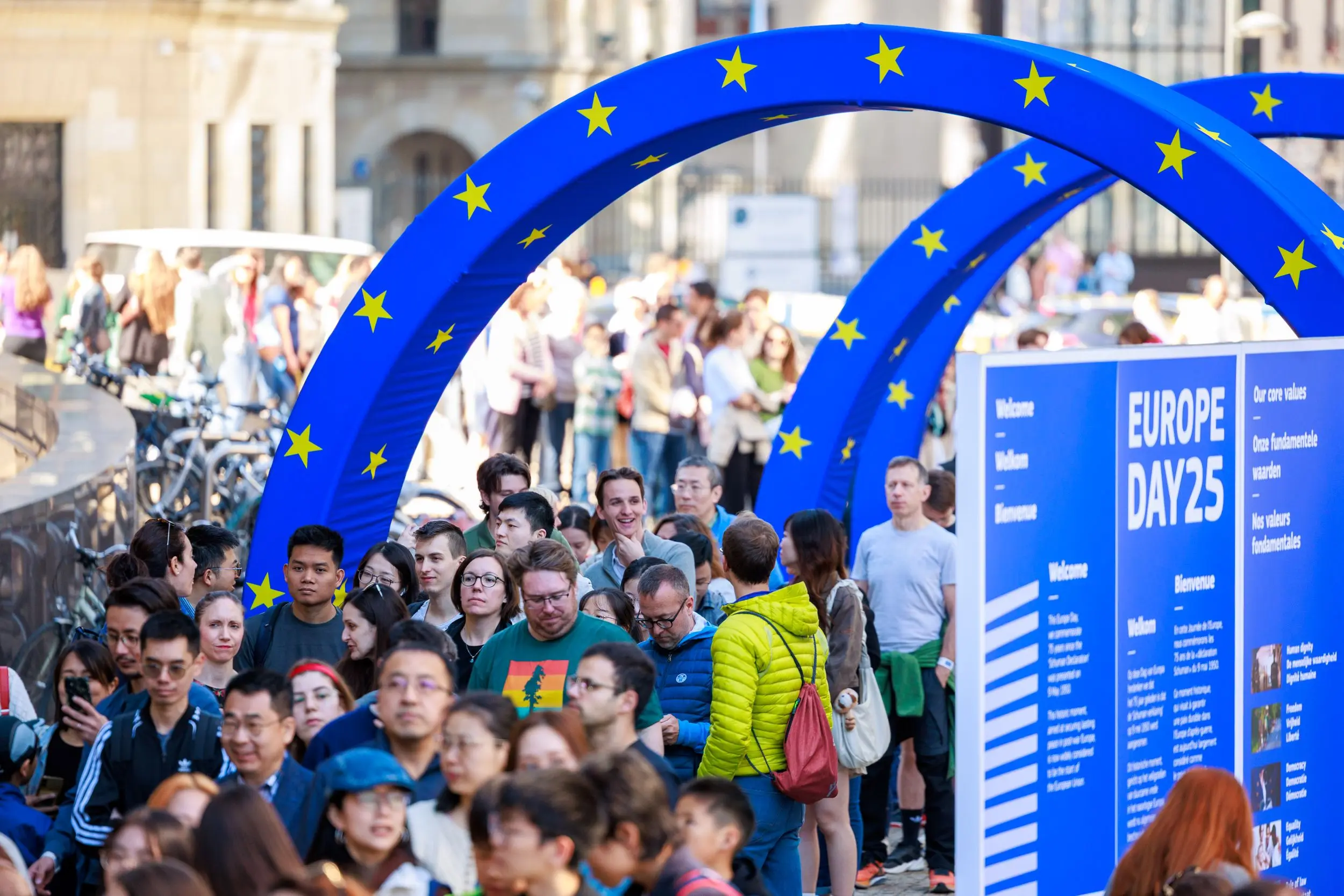The EU’s energy dependence, between gas and nuclear power
Gas and nuclear as green energy? The European Parliament may not agree and reject the taxonomy proposed by the European Commission

Dipendenza-energetica-dell-UE-tra-gas-e-nucleare
Twilight power gas turbine power plant © PLUkaAOM/Shutterstock
On February 2, 2022, the European Commission adopted a “complementary delegated act of the EU taxonomy of sustainable activities”, that is a document that classifies some gas and nuclear power plants with emissions below certain thresholds as transitory activities, defined by Mairead McGuinnes, European Commissioner for financial services, "an imperfect solution but a real solution".
The act is expected to enter into force from 2023 if the Council or the European Parliament (EP) does not veto it. While apparently there will be no major problems in getting the approval of the Council, Parliament may have some surprises in store.
A political compromise
The addition of these two energy sources is essentially an expression of the specific interests of the member states, led by France and Germany. In fact, France produces a large part of its energy through nuclear power plants, and French President Macron himself declared that "nuclear energy should be included in the taxonomy" being "one of the solutions to decarbonise our economies". Germany, on the other hand, again for reasons of domestic energy supply, insisted that restrictions on gas be relaxed.
To meet the needs of states, in January 2022 the Commission had launched a consultation on the inclusion of gas and nuclear power in the taxonomy. However, there was no lack of opposition, especially from Parliament.
The presidents of the EP Commission for Economic and Monetary Affairs and the Commission for the Environment, Public Health and Food Safety have written a joint letter to the Commission in which they criticise the tight deadline and procedure of this consultation.
Two letters have arrived from some members of the Socialists and Democrats group, one criticising the consultation process, and another directly raising concerns about the inclusion of gas and nuclear power in the taxonomy.
The Greens, on the other hand, have begun a collection of signatures to "stop the greenwashing of gas and nuclear power in the taxonomy".
Criticism also came from private individuals. With an open letter to European institutions, the Institutional Investors group on Climate Change, a group of investors worth 50 trillion Euros, asked the EU to review the decision to include gas in the taxonomy to avoid confusing investors by sending mixed signals and ultimately undermining efforts towards the energy transition.
Non-governmental organisations have also strongly criticised the delegated act, with WWF directly asking MEPs to reject the Commission’s so-called ‘greenwashing’ proposal.
The war in Ukraine and gas
The war in Ukraine has made the issue of energy production in the EU an even more heated political battleground.
With 40% of the natural gas used in Europe imported from Russia, on the very day of the attack, the instability brought about by the Russian invasion meant that the price of gas increased by 30%, continuing to rise with the worsening of the conflict and bringing up the issue of EU energy dependence.
On March 1, Parliament approved the resolution on Russian aggression against Ukraine in which, among other things, the Commission and member states are asked to restrict the import of the main Russian goods, including oil and gas, significantly reduce energy dependence on Russia, and definitively abandon the Nord Stream 2 gas pipeline.
On March 3, the Greens wrote a letter to the European Commission, drafting a series of actions to be taken to promote the energy transition, also as a response to Russian aggression. The requests include the adoption of a "law on EU energy independence" increasing funding for energy efficiency and renewables as well as the introduction of sectoral measures for energy saving and diffusion renewables, together with the withdrawal of the delegated act of the EU gas and nuclear taxonomy.
On 8 March the Commission adopted REPowerEU, "a plan to free Europe from Russian fossil fuels well before 2030, starting with gas, following the invasion of Ukraine by Russia". The plan envisages diversifying the supply of gas, buying it from countries other than Russia, accelerating the introduction of renewable gas, and replacing gas in heating and energy production.
The Greens negatively commented on REPowerEU with a statement arguing that "the Commission’s plans are not up to par and fail to reduce our dependence on fossil fuels", proposing actions that "would take years to implement, creating further dependence from fossil sources”, and that "the European Union must make us independent from fossil fuels by promoting energy efficiency", as "Putin’s war clearly shows that betting on gas as a transition fuel is a serious mistake. The Commission should urgently review its scenarios and withdraw the delegated act that currently includes gas and nuclear power in the EU taxonomy".
On 9 March, more than 100 members of the European Parliament, from all parliamentary groups, also proposed a ban on Russian imports of fossil fuels. Yet, Parliament is divided on this issue: the president of the Parliament’s Environment Committee himself, French liberal Pascal Canfin, said that he would not vote for a ban of this type, because Europe simply does not have the possibility to abandon Russian gas overnight without serious economic repercussions.
Will Parliament reject the delegated act?
Precisely as a consequence of the Russian-Ukrainian conflict, Parliament could find a political agreement to prevent gas and nuclear power from being considered green investments. In a letter to the European Commission dated 15 March, 102 MEPs from 5 different political groups stressed that overcoming energy dependence on Russia is in contrast with the inclusion of gas in the taxonomy, which instead goes in the opposite direction, increasing the need for gas as raw material.
With a simple majority of 353 of its members, Parliament could veto the delegated act. Although the front appears to be united only in the Greens, between the Socialists and Democrats, and the radical left, the fact that some representatives of the Popular Party and the Liberals have signed this letter seems to echo Green Bas Eickhout, deputy chairman of the parliamentary committee for environment, which stated that a consensus against gas appears to be emerging in the European Parliament.
According to Euractiv sources, the numbers to reject the Commission’s proposal in parliament could only exist if the Popular Party changes its position and decides to align itself with the Greens and left-wing formations.
The EU’s goal of eliminating its net emissions by 2050 will require large investments, mostly private funding. The EU taxonomy is a classification system that indicates which economic activities can be considered sustainable investments. It includes a list of economic activities, with detailed environmental criteria that each activity must meet in order to be characterised as "green".
In fact, European institutions want to give rules that help eliminate greenwashing by companies, directing private investments towards activities that effectively contribute to the achievement of the EU’s decarbonisation objectives and, in the future, also conditioning access to some European funding instruments.
The EU classifies three types of green activities. The first directly contribute to the achievement of the decarbonisation objectives. The second facilitate other ecological activities. Lastly, transitional activities, although not completely sustainable, have emissions below the sector average and do not prevent greener alternatives.
The EU’s energy dependence, between gas and nuclear power
Gas and nuclear as green energy? The European Parliament may not agree and reject the taxonomy proposed by the European Commission

Dipendenza-energetica-dell-UE-tra-gas-e-nucleare
Twilight power gas turbine power plant © PLUkaAOM/Shutterstock
On February 2, 2022, the European Commission adopted a “complementary delegated act of the EU taxonomy of sustainable activities”, that is a document that classifies some gas and nuclear power plants with emissions below certain thresholds as transitory activities, defined by Mairead McGuinnes, European Commissioner for financial services, "an imperfect solution but a real solution".
The act is expected to enter into force from 2023 if the Council or the European Parliament (EP) does not veto it. While apparently there will be no major problems in getting the approval of the Council, Parliament may have some surprises in store.
A political compromise
The addition of these two energy sources is essentially an expression of the specific interests of the member states, led by France and Germany. In fact, France produces a large part of its energy through nuclear power plants, and French President Macron himself declared that "nuclear energy should be included in the taxonomy" being "one of the solutions to decarbonise our economies". Germany, on the other hand, again for reasons of domestic energy supply, insisted that restrictions on gas be relaxed.
To meet the needs of states, in January 2022 the Commission had launched a consultation on the inclusion of gas and nuclear power in the taxonomy. However, there was no lack of opposition, especially from Parliament.
The presidents of the EP Commission for Economic and Monetary Affairs and the Commission for the Environment, Public Health and Food Safety have written a joint letter to the Commission in which they criticise the tight deadline and procedure of this consultation.
Two letters have arrived from some members of the Socialists and Democrats group, one criticising the consultation process, and another directly raising concerns about the inclusion of gas and nuclear power in the taxonomy.
The Greens, on the other hand, have begun a collection of signatures to "stop the greenwashing of gas and nuclear power in the taxonomy".
Criticism also came from private individuals. With an open letter to European institutions, the Institutional Investors group on Climate Change, a group of investors worth 50 trillion Euros, asked the EU to review the decision to include gas in the taxonomy to avoid confusing investors by sending mixed signals and ultimately undermining efforts towards the energy transition.
Non-governmental organisations have also strongly criticised the delegated act, with WWF directly asking MEPs to reject the Commission’s so-called ‘greenwashing’ proposal.
The war in Ukraine and gas
The war in Ukraine has made the issue of energy production in the EU an even more heated political battleground.
With 40% of the natural gas used in Europe imported from Russia, on the very day of the attack, the instability brought about by the Russian invasion meant that the price of gas increased by 30%, continuing to rise with the worsening of the conflict and bringing up the issue of EU energy dependence.
On March 1, Parliament approved the resolution on Russian aggression against Ukraine in which, among other things, the Commission and member states are asked to restrict the import of the main Russian goods, including oil and gas, significantly reduce energy dependence on Russia, and definitively abandon the Nord Stream 2 gas pipeline.
On March 3, the Greens wrote a letter to the European Commission, drafting a series of actions to be taken to promote the energy transition, also as a response to Russian aggression. The requests include the adoption of a "law on EU energy independence" increasing funding for energy efficiency and renewables as well as the introduction of sectoral measures for energy saving and diffusion renewables, together with the withdrawal of the delegated act of the EU gas and nuclear taxonomy.
On 8 March the Commission adopted REPowerEU, "a plan to free Europe from Russian fossil fuels well before 2030, starting with gas, following the invasion of Ukraine by Russia". The plan envisages diversifying the supply of gas, buying it from countries other than Russia, accelerating the introduction of renewable gas, and replacing gas in heating and energy production.
The Greens negatively commented on REPowerEU with a statement arguing that "the Commission’s plans are not up to par and fail to reduce our dependence on fossil fuels", proposing actions that "would take years to implement, creating further dependence from fossil sources”, and that "the European Union must make us independent from fossil fuels by promoting energy efficiency", as "Putin’s war clearly shows that betting on gas as a transition fuel is a serious mistake. The Commission should urgently review its scenarios and withdraw the delegated act that currently includes gas and nuclear power in the EU taxonomy".
On 9 March, more than 100 members of the European Parliament, from all parliamentary groups, also proposed a ban on Russian imports of fossil fuels. Yet, Parliament is divided on this issue: the president of the Parliament’s Environment Committee himself, French liberal Pascal Canfin, said that he would not vote for a ban of this type, because Europe simply does not have the possibility to abandon Russian gas overnight without serious economic repercussions.
Will Parliament reject the delegated act?
Precisely as a consequence of the Russian-Ukrainian conflict, Parliament could find a political agreement to prevent gas and nuclear power from being considered green investments. In a letter to the European Commission dated 15 March, 102 MEPs from 5 different political groups stressed that overcoming energy dependence on Russia is in contrast with the inclusion of gas in the taxonomy, which instead goes in the opposite direction, increasing the need for gas as raw material.
With a simple majority of 353 of its members, Parliament could veto the delegated act. Although the front appears to be united only in the Greens, between the Socialists and Democrats, and the radical left, the fact that some representatives of the Popular Party and the Liberals have signed this letter seems to echo Green Bas Eickhout, deputy chairman of the parliamentary committee for environment, which stated that a consensus against gas appears to be emerging in the European Parliament.
According to Euractiv sources, the numbers to reject the Commission’s proposal in parliament could only exist if the Popular Party changes its position and decides to align itself with the Greens and left-wing formations.
The EU’s goal of eliminating its net emissions by 2050 will require large investments, mostly private funding. The EU taxonomy is a classification system that indicates which economic activities can be considered sustainable investments. It includes a list of economic activities, with detailed environmental criteria that each activity must meet in order to be characterised as "green".
In fact, European institutions want to give rules that help eliminate greenwashing by companies, directing private investments towards activities that effectively contribute to the achievement of the EU’s decarbonisation objectives and, in the future, also conditioning access to some European funding instruments.
The EU classifies three types of green activities. The first directly contribute to the achievement of the decarbonisation objectives. The second facilitate other ecological activities. Lastly, transitional activities, although not completely sustainable, have emissions below the sector average and do not prevent greener alternatives.









